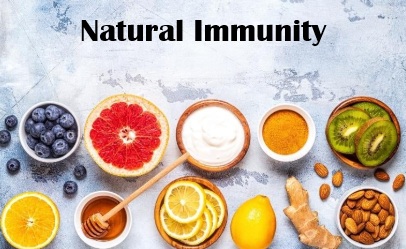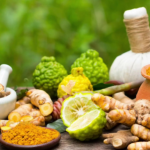Natural Immunity Boosters That Actually Work – Backed by Studies
Written by Rikhtiya — Discovering Secret Facts
In a world where health and wellness are increasingly prioritized, the focus on strengthening the immune system has never been more relevant. A strong immune system helps the body fight off infections, viruses, and diseases, and some natural immunity boosters have proven to be effective in supporting this essential defense system. This article delves into the most effective natural immunity boosters, all backed by scientific studies, so you can make informed decisions about your health.
1. Vitamin C – The Immunity Powerhouse

Vitamin C has long been considered one of the most powerful nutrients when it comes to supporting the immune system. It plays a key role in stimulating the production of white blood cells, which are essential for fighting off infections.
Scientific Support: A study published in the Cochrane Database of Systematic Reviews suggests that regular intake of vitamin C can reduce the duration of colds, particularly in those who are under physical stress or exposed to cold weather.
Best Sources: Citrus fruits (like oranges, lemons, and grapefruits), strawberries, bell peppers, and broccoli are all rich in vitamin C. Supplementation may also be beneficial during flu season or if dietary intake is insufficient.
2. Zinc – The Immune System’s Helper Mineral
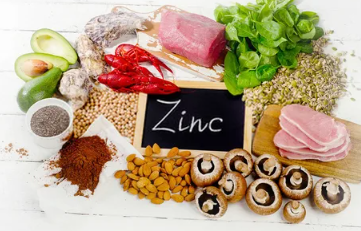
Zinc is another essential nutrient that plays a crucial role in maintaining immune function. It supports the development and function of immune cells like neutrophils and macrophages. Zinc deficiency can lead to a weakened immune response, increasing susceptibility to infections.
Scientific Support: Research published in the Journal of Infectious Diseases highlights that zinc supplementation can reduce the severity and duration of the common cold. Zinc also helps in wound healing and plays a role in maintaining the integrity of the skin and mucosal membranes, which are crucial barriers to pathogens.
Best Sources: Foods like oysters, red meat, legumes, seeds, and nuts are excellent sources of zinc.
3. Probiotics – Balancing the Gut for Better Immunity

The gut plays a central role in immune function, with about 70% of the immune system residing in the digestive tract. Probiotics, which are beneficial bacteria, can support gut health and, in turn, strengthen immunity.
Scientific Support: A 2014 study in the Journal of Clinical Gastroenterology found that probiotics can enhance the immune response by improving the gut microbiota, which helps the body fight infections more effectively. Probiotics have also been shown to reduce the likelihood of respiratory infections.
Best Sources: Yogurt, kefir, sauerkraut, kimchi, and other fermented foods are natural sources of probiotics. Probiotic supplements are also widely available for those who need extra support.
4. Garlic – The Antimicrobial Superfood.
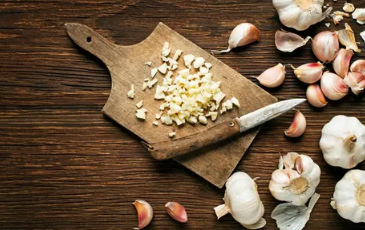
Garlic has been used for centuries for its medicinal properties. Rich in allicin, a sulfur compound, garlic possesses potent antimicrobial, antiviral, and anti-inflammatory properties.
Scientific Support: According to a study published in the Advances in Therapy journal, garlic supplementation has been shown to reduce the frequency and duration of colds. Another study found that garlic extract can help boost the immune system’s ability to fight off infections.
Best Sources: Fresh garlic is the best source, but garlic supplements are also available for those who prefer a more concentrated dose.
5. Elderberry – A Traditional Remedy with Proven Benefits
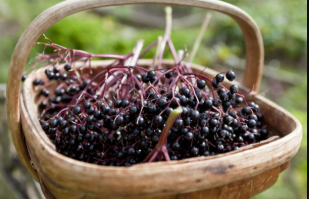
Elderberry has been used in traditional medicine for centuries to treat colds and flu-like symptoms. Recent research has shown that elderberries can be effective in reducing the duration and severity of flu symptoms.
Scientific Support: A study published in the Journal of International Medical Research found that elderberry extract significantly reduced the duration and severity of flu symptoms in individuals with influenza. Elderberries have antiviral properties that inhibit the replication of the flu virus.
Best Sources: Elderberry syrup, capsules, or tea are the most common ways to incorporate this powerful natural remedy into your routine.
6. Turmeric – The Golden Spice with Immune-Boosting Benefits
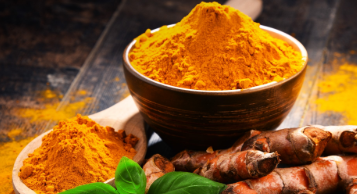
Turmeric, especially its active compound curcumin, has been recognized for its anti-inflammatory, antioxidant, and immune-boosting properties. Curcumin can help regulate the immune system, making it more efficient in responding to infections.
Scientific Support: A study published in Frontiers in Immunology revealed that curcumin enhances the immune system’s ability to fight infections by promoting the activity of immune cells. It also plays a role in reducing inflammation, which can be beneficial for overall immune health.
Best Sources: Fresh turmeric root, turmeric powder, or turmeric supplements are all great ways to benefit from this powerful spice.
7. Green Tea – A Powerful Antioxidant Drink.
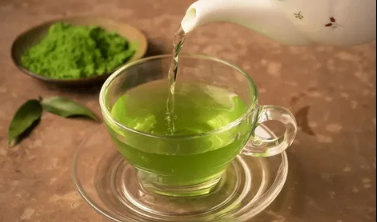
Green tea is packed with polyphenols, especially catechins like EGCG (epigallocatechin gallate), which have been shown to enhance immune function. Regular consumption of green tea may help improve the body’s defense mechanisms.
Scientific Support: A study published in the Journal of Clinical Nutrition found that drinking green tea regularly could enhance the immune response, particularly in terms of viral infections. Green tea’s antioxidant properties also help protect immune cells from oxidative stress.
Best Sources: Brewed green tea is the most common way to consume this immunity-boosting beverage. You can also find green tea extract in supplement form.
8. Vitamin D – The Sunshine Vitamin.

Vitamin D is crucial for the immune system, as it helps activate immune cells that fight off pathogens. A deficiency in vitamin D has been linked to an increased risk of infections, particularly respiratory infections.
Scientific Support: A study published in The Lancet Diabetes & Endocrinology found that vitamin D supplementation can help reduce the risk of respiratory infections. Another meta-analysis in BMJ showed that vitamin D can help reduce the likelihood of developing the flu, particularly in those with low baseline levels of the vitamin.
Best Sources: Sunlight exposure is the most natural source of vitamin D, but it can also be found in foods such as fatty fish, fortified dairy products, and egg yolks. Supplementation is often recommended, especially in regions with limited sunlight.
9. Cinnamon – A Powerful Anti-inflammatory Spice.
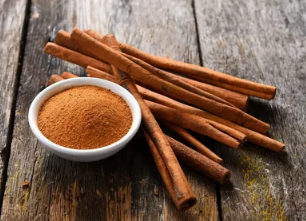
Cinnamon is more than just a flavorful spice; it also possesses anti-inflammatory and antimicrobial properties that can help boost the immune system. It contains compounds like cinnamaldehyde, which have been shown to inhibit the growth of harmful bacteria.
Scientific Support: Research published in BMC Complementary and Alternative Medicine indicates that cinnamon can enhance the immune system by increasing the activity of immune cells and reducing inflammation.
Best Sources: Cinnamon can be consumed in powder form, added to smoothies, teas, and baked goods, or taken as a supplement.
10. Ashwagandha – The Adaptogenic Herb for Stress and Immunity.
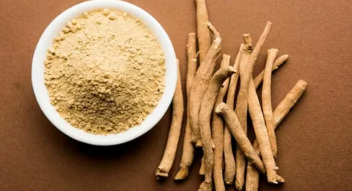
Ashwagandha, an adaptogenic herb, helps the body adapt to stress. Chronic stress can weaken the immune system, making ashwagandha particularly beneficial for maintaining immune function.
Scientific Support: A study published in the Journal of Ethnopharmacology found that ashwagandha supplementation improved the body’s ability to fight infections by reducing cortisol levels and increasing the activity of immune cells like natural killer cells.
Best Sources: Ashwagandha is typically consumed as a powder, capsule, or liquid extract.
Conclusion
Supporting your immune system with natural remedies is a holistic approach to health that can have lasting benefits. From vitamin C and zinc to elderberry and ashwagandha, these immune-boosting foods and supplements have been scientifically validated to help your body stay strong and resilient. However, it’s always important to maintain a balanced diet, regular exercise, adequate sleep, and stress management in conjunction with these natural immunity boosters. If you’re considering supplementation, consult with a healthcare professional to determine what works best for your individual needs.

